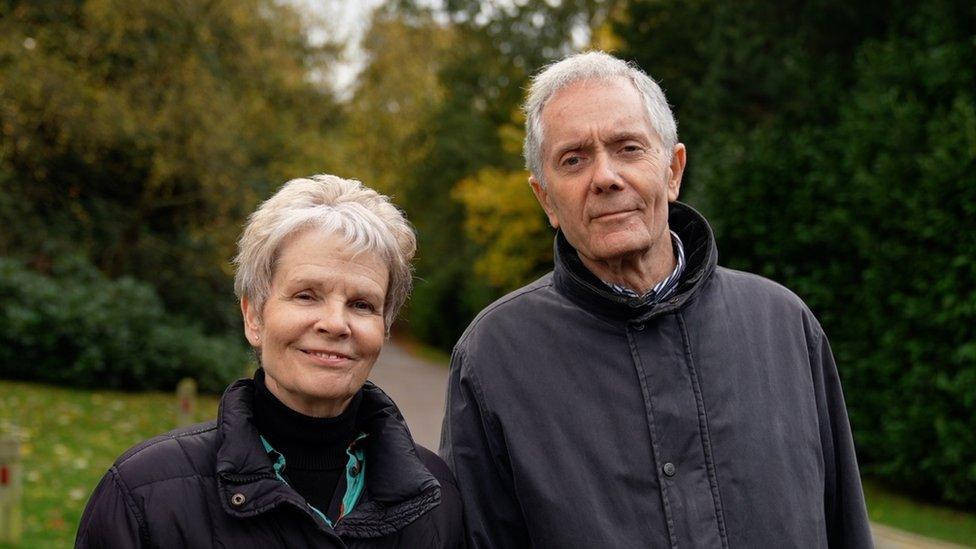Alzheimer's drug gives hope, Sevenoaks family says
- Published

David Essam, with his wife Cheryl, has been taking part in the trial
The wife of Kent man who was put on a "momentous" drug developed to fight Alzheimer's says it has given the couple "hope".
David Essam, 78, from Sevenoaks, started developing Alzheimer's about seven years ago.
He was put on a new drug, Lecanemab, as part of an international trial for those with early stage Alzheimer's.
His Alzheimer's meant he had to give up work as a joiner as he could no longer remember how to use his tools.
He now uses a digital watch as he can't tell time using a clock face.
Cheryl Essam said her husband has experienced "deterioration" after three years on the trial.
But she said there are activities that he can still do, adding that the trial "has helped us" and "has given us hope".
"Every day that David is still able to do those things, we're convinced is down to the fact that we've been lucky enough to be on the trial," she said.

Lecanemab works in the early stages of the disease, and attacks the sticky gunge - called beta amyloid - that builds up in the brains of people with Alzheimer's.
The large-scale international trial involved 1,795 volunteers with early stage Alzheimer's. Infusions of lecanemab were given every fortnight.
Alzheimer's Research UK said the research breakthrough was "momentous".
Ms Essam said those who were running the trial say they can prove that beta amyloid has been reduced with her husband.
Mr Essam said: "There are lots of things I used to be able to do [and] now I can't do. That's what I miss."

Follow BBC South East on Facebook, external, on Twitter, external, and on Instagram, external. Send your story ideas to southeasttoday@bbc.co.uk, external.
Related topics
- Published3 May 2023

- Published30 November 2022

- Published28 September 2022
